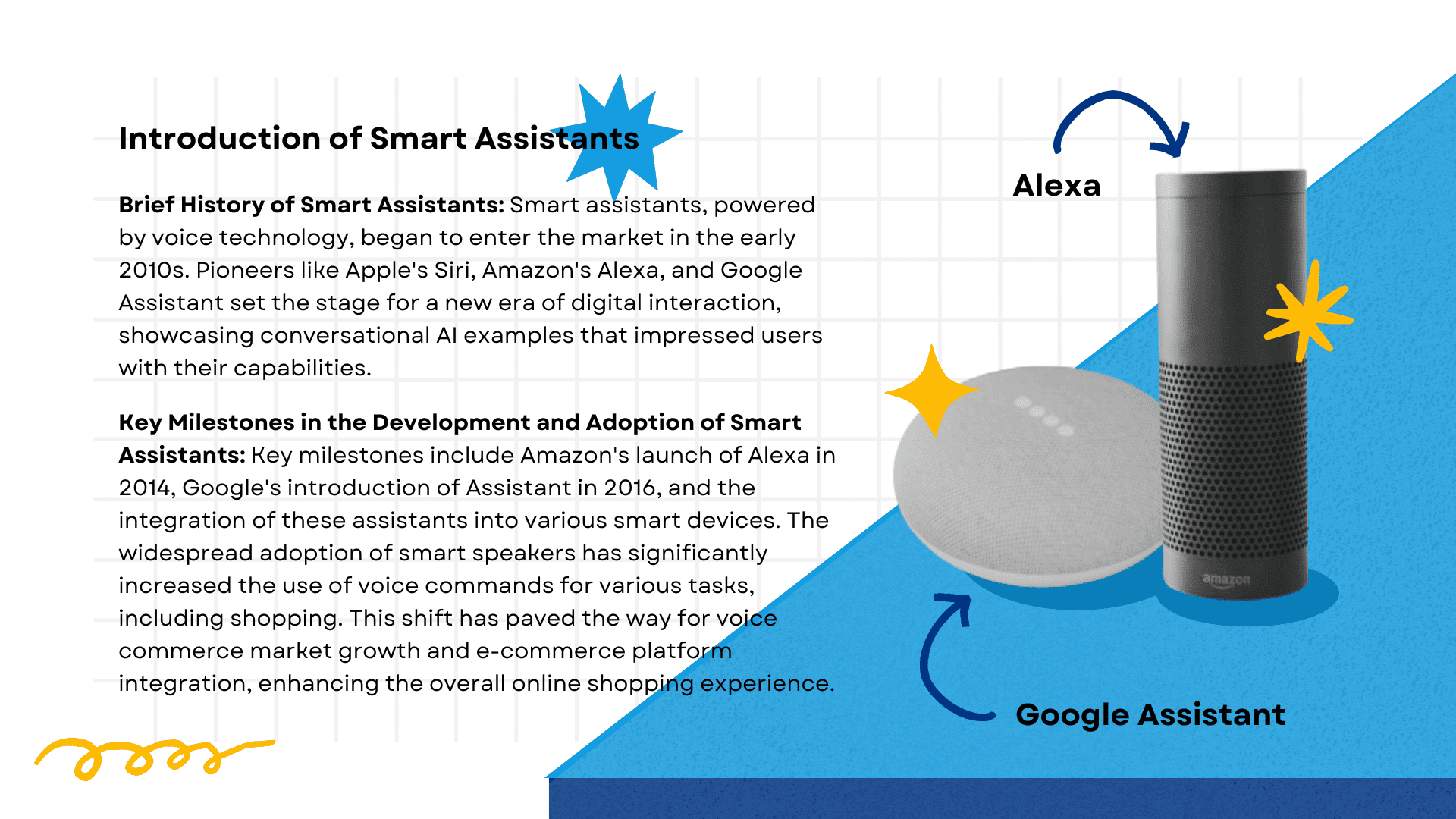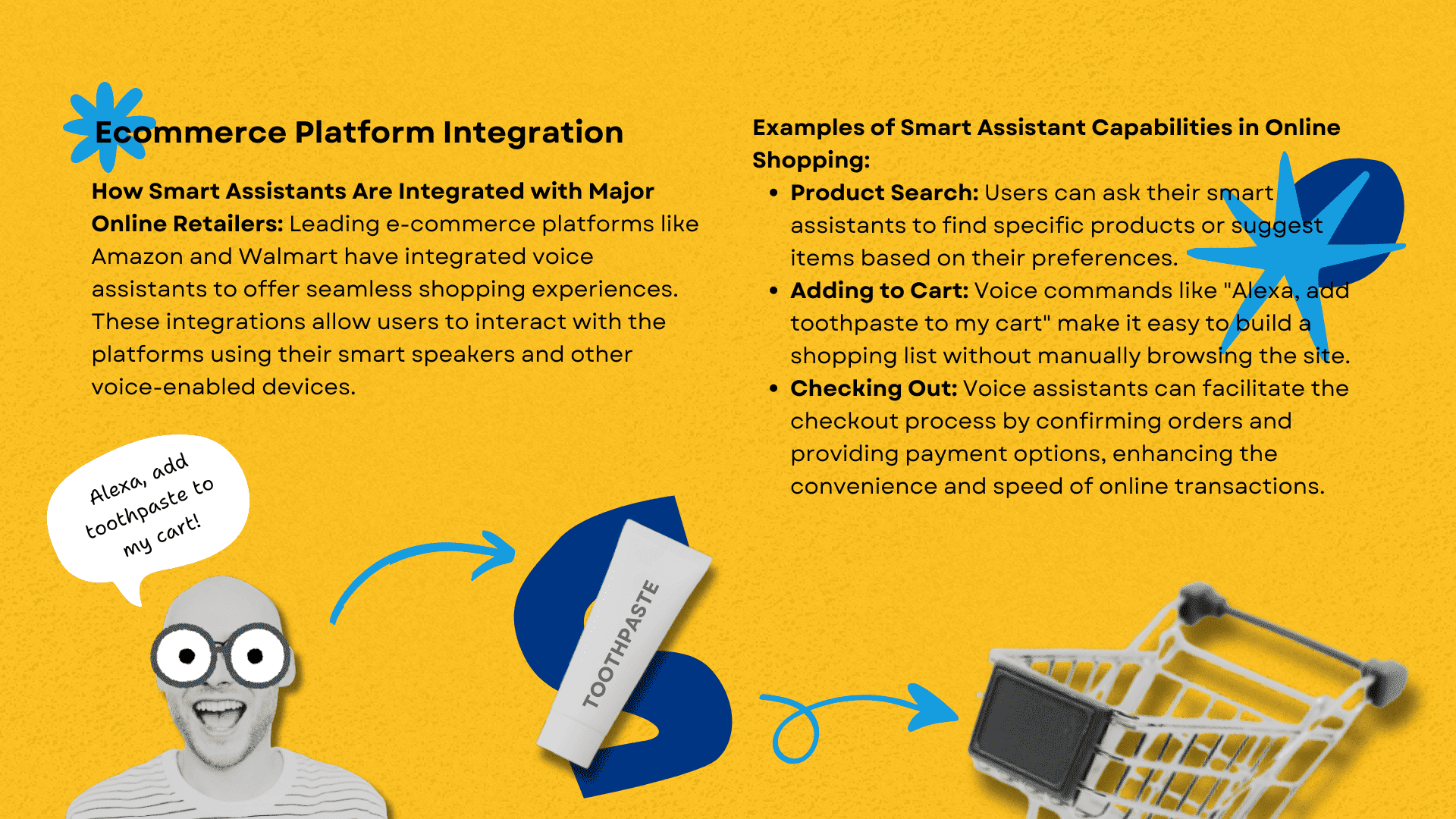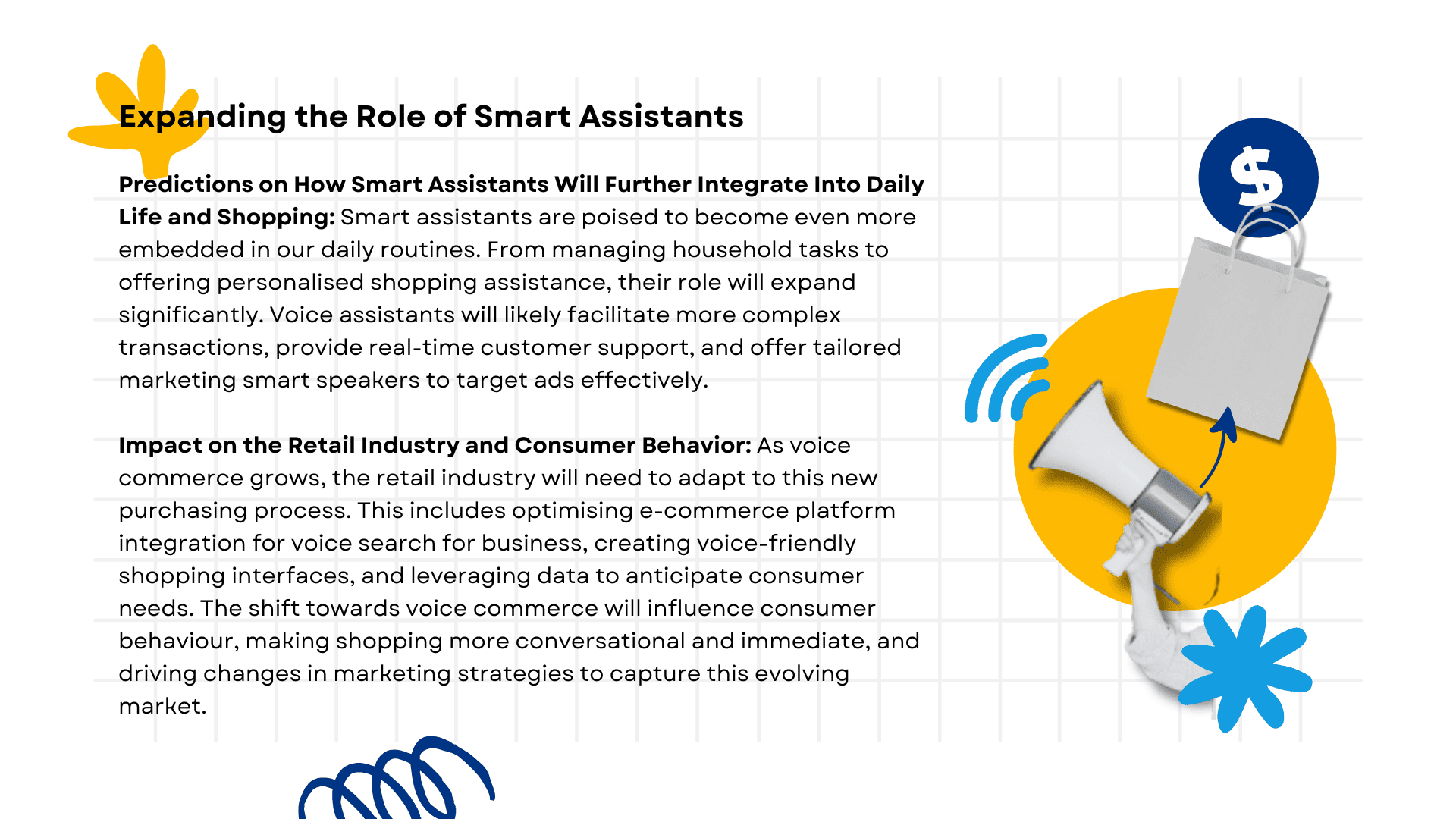How to Fix an Alternate Page with Proper Canonical Tag? | SEO Guide In the…

How Are Smart Assistants Changing the Online Shopping Experience?
How Are Smart Assistants Changing the Online Shopping Experience?
Smart assistants like Alexa and Google Assistant have quickly become integral to daily life, streamlining tasks and enhancing convenience. These devices are not just for setting reminders or playing music—they’re revolutionising how we shop online. This article explores how smart assistants are transforming the online shopping experience, shifting from traditional clicks to intuitive voice commands.
The Evolution of Online Shopping
- Overview of Traditional Online Shopping Methods: In the early days, online shopping was primarily driven by clicks and searches on e-commerce platforms. Users would navigate through multiple pages, using keywords to find products and manually adding items to their carts.
- Limitations and Challenges Faced by Users: This method, while revolutionary at the time, had its limitations. It required users to have a certain level of digital literacy, was time-consuming, and often resulted in abandoned carts due to a cumbersome purchasing process.

How Do Voice Assistants Work in the Purchasing Process?
- Explanation of Voice Search Technology: Voice search technology leverages Natural Language Processing (NLP) to understand and process human speech. This technology enables smart assistants to interpret voice commands, making the purchasing process more intuitive and hands-free.
- Examples of Common Voice Commands Used in Shopping: Shoppers can use commands like “Alexa, find me a pair of running shoes,” “Hey Google, add milk to my shopping cart,” or “Siri, what’s the best price for the new iPhone?” These examples highlight how voice search for business streamlines product discovery and enhances them.

Benefits of Using Smart Assistants for Shopping
- Time-Saving Aspects of Voice Commands: Voice assistants streamline the purchasing process by allowing users to perform tasks quickly. For instance, instead of manually typing and searching for products, users can simply speak their requests, saving valuable time and effort.
- Hands-Free Shopping Experience: One of the most significant advantages of smart assistants is the hands-free experience they offer. Shoppers can make purchases while cooking, driving, or multitasking, making the online shopping experience more flexible and accessible.
Personalised Recommendations
- How Smart Assistants Use Data to Provide Personalised Shopping Suggestions: Smart assistants utilise data from previous purchases, browsing history, and user preferences to offer tailored shopping recommendations. This use of data, powered by sophisticated NLP communication models, ensures that the suggestions are relevant and timely.
- Impact on Customer Satisfaction and Sales: Personalised recommendations enhance customer satisfaction by making the shopping experience more relevant to individual needs. This personalisation not only boosts customer loyalty but also drives sales, as users are more likely to purchase items that align with their preferences and needs.

Accuracy and Reliability
- Challenges Related to Voice Recognition Accuracy: Voice recognition technology, while advanced, is not foolproof. Accents, background noise, and speech impairments can lead to misinterpretations and errors in the purchasing process, causing frustration for users.
- User Experiences and Potential Frustrations: Inaccuracies in voice recognition can lead to incorrect orders, difficulty in finding products, and a generally unsatisfactory shopping experience. Companies are continuously working to improve the accuracy of voice assistants through machine learning and natural language processing advancements, but user patience and continued feedback are essential for ongoing improvements.
Future Trends in the Voice Commerce Market
- Upcoming Improvements in Smart Assistant Technology: With continuous advancements in AI and machine learning, smart assistants are expected to become more intuitive and responsive. Enhancements in natural language processing (NLP) communication models will allow for more accurate understanding and interaction, making the shopping experience even smoother.
- Potential New Features and Capabilities: Future smart assistants may offer enhanced predictive capabilities, a better understanding of context, and more sophisticated conversational AI examples. These improvements could lead to features such as automatic reordering of frequently purchased items, personalised shopping experiences, and seamless integration with other smart home devices.

Marketing Smart Speakers to Target Ads
- Effective Marketing Strategies for Smart Speakers: To successfully market smart speakers, companies focus on highlighting convenience, efficiency, and the advanced capabilities of voice assistants. Promoting the integration of these devices with popular e-commerce platforms and showcasing their ability to streamline the purchasing process can attract more consumers.
- Targeted Ads Through Smart Speakers and Their Impact on Consumer Behaviour: Smart speakers provide a unique opportunity for targeted advertising. By leveraging user data and shopping habits, businesses can deliver personalised ads directly through these devices. This direct form of advertising can significantly influence purchasing decisions, making it a powerful tool in the voice commerce market.
Conversational AI Examples
- Real-World Examples of Conversational AI in Action: Various companies are already using conversational AI to enhance their customer service and shopping experiences. For instance, brands like Amazon and Walmart use AI-powered assistants to handle customer queries, provide product recommendations, and assist with purchases.
- How Businesses Are Leveraging These Technologies to Enhance Customer Experiences: Businesses are incorporating conversational AI into their customer service strategies to offer seamless, efficient, and personalised interactions. This technology helps in reducing wait times, providing accurate information, and improving overall customer satisfaction. By integrating conversational AI, companies can create a more engaging and interactive shopping experience, ultimately driving customer loyalty and sales.
Conclusion
Smart assistants have revolutionised the online shopping experience, offering convenience, personalised recommendations, and efficiency. Despite challenges with privacy, security, and accuracy, the benefits are substantial. Future advancements in AI will further enhance these technologies, embedding them deeper into our daily lives and changing consumer behaviour. Businesses are using smart assistants for targeted ads, driving growth in the voice commerce market.



